
Healthy living
Use our expert advice and recommendations to live your best life every day.
Get startedBy clicking a retailer link you consent to third-party cookies that track your onward journey. This enables W? to receive an affiliate commission if you make a purchase, which supports our mission to be the UK's consumer champion.
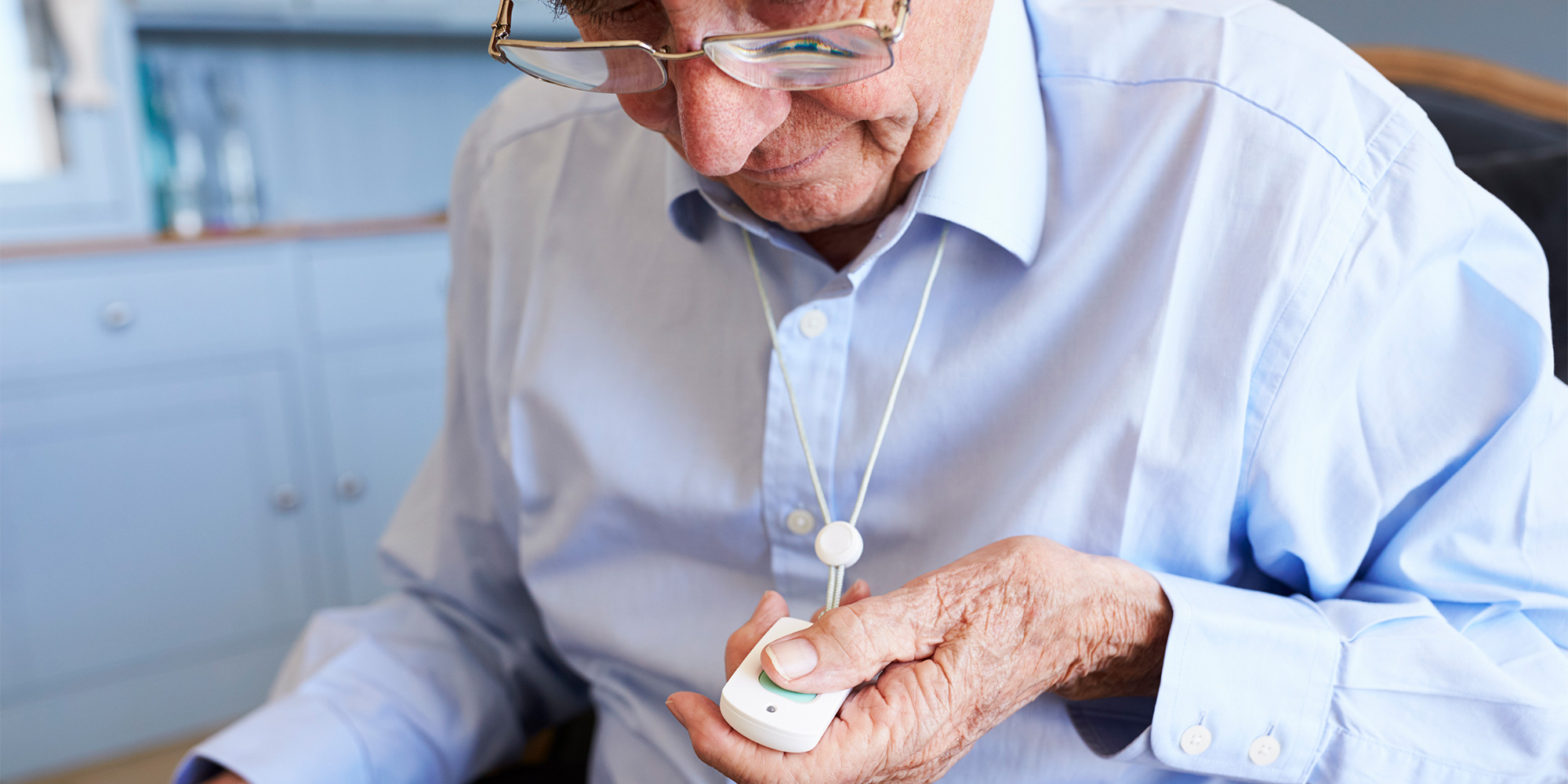
In this article
Personal alarms allow you to call for assistance if you have an accident or fall at home.
They're simple to use and can help you to stay safer and remain independent for longer. These potentially lifesaving devices can also offer peace of mind to family and friends.
There are a wide variety of personal alarms available and they work in different ways. Some are connected to 24/7 emergency response centres while others simply let out a loud noise to alert people nearby, or directly alert your family, carer or friends.
Here we explain the different types of personal alarms, how much you should expect to pay, some of the key brands offering personal alarms and more.
The Careline365 Q20 GPS Pendant Alarm has been recalled due to the risk of strangulation and injuries as the lanyard doesn't include a quick-release safety break.
This alarm was sold from 30th September 2025 to 28th October 2025. Users have been contacted directly by Careline365 to offer replacement products.
If you need any more information, contact Careline365 by calling 0808 304 4183 or emailing info@careline.co.uk.
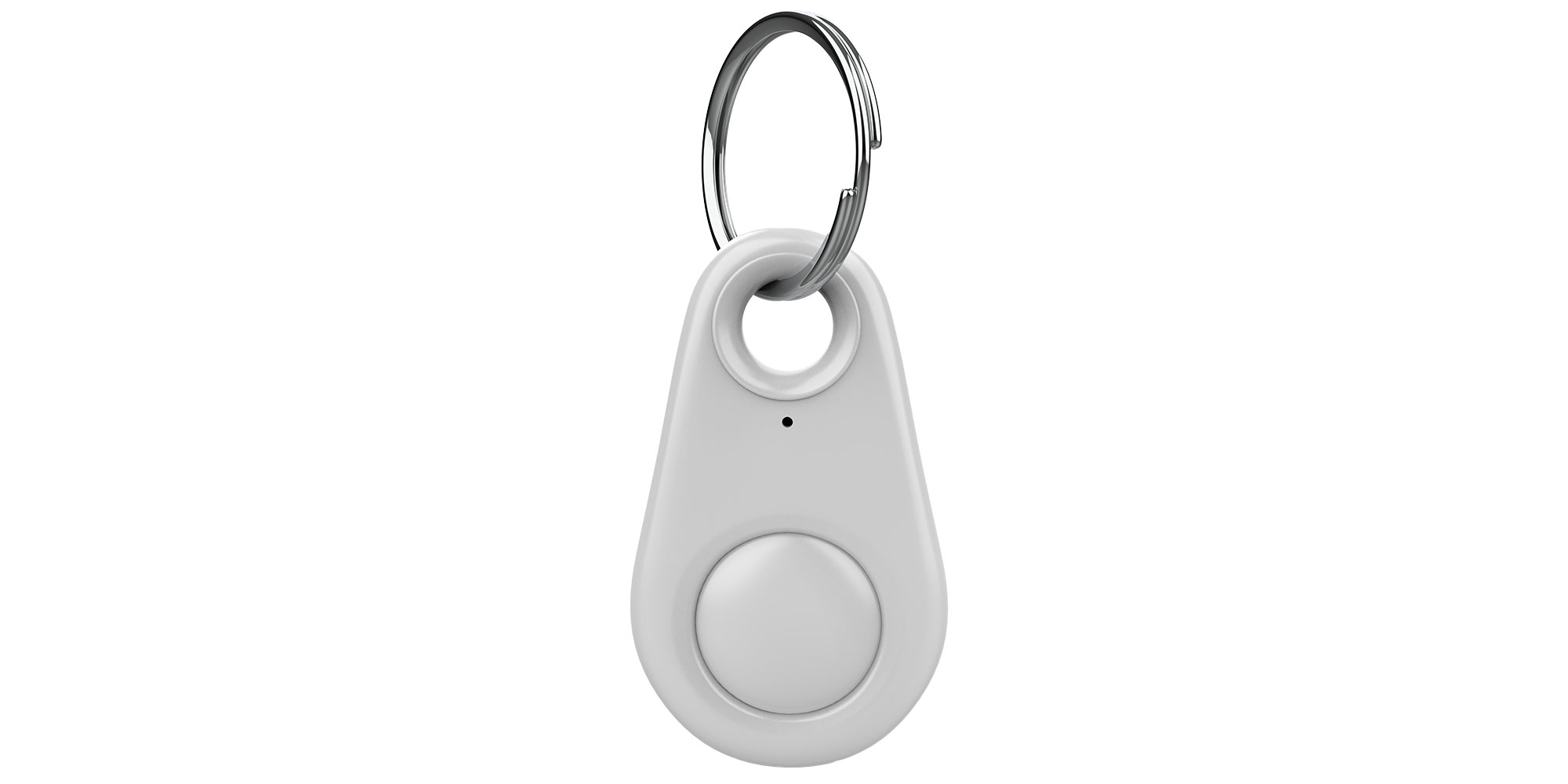
Basic personal alarms work by sounding a loud noise when a button is pressed on the device – they alert people within hearing distance that you need assistance.
This could be someone else at home, a relative, carer or even a neighbour.
Although the system is basic, it can help you move around your home independently, knowing that someone will be on hand if you need it.
Pros
Cons

Pendant alarms can connect you with an emergency response centre should you need help or assistance.
By simply pressing a button on the pendant, watch or device, an alert is sent to an emergency response centre via the base unit in your home.
The centre provides 24-hour monitoring and responds to a range of incidents, including falls, accidents and rogue callers.
When you contact staff, they'll decide if you need emergency services or if they need to call one of your chosen, trusted contacts.
Several companies offer the service, which typically has an initial setup fee and then an ongoing monthly or annual subscription payment.
The monthly fee depends on the type of service; for example, you can expect to pay more if you need a larger alert range (from the base unit).
Some pendant alarms let you speak directly through the device; others speak to you using a loudspeaker in the base unit.
Pros
Cons

Fall detectors can give you reassurance that if you do fall, help will be available as quickly as possible.
A fall alarm is very similar to a pendant alarm, the key difference being that it works automatically.
It uses an in-built motion sensor to detect any unexpected fall or downward motion and then sends an alert to a call centre or a loved one. Some models allow you to talk directly to the call centre via a two-way speaker either on a device or base unit.
Fall detectors are paid for as part of a monthly subscription and require an installation fee to get things up and running. Many providers offer models that combine a fall alarm and pendant-type alarm in a single device.
Pros
Cons
Bear in mind that an analogue telecare alarm system (that uses a landline connection) may not function as intended in homes with an internet connection, or that have been upgraded as part of the nationwide analogue-to-digital landline switchover.
If you have a telecare system, you should contact your landline provider to let them know as soon as possible. If you are thinking of getting a personal alarm with telecare, opt for a digital service that is switchover-ready.
See our full guide to the digital switchover for more.
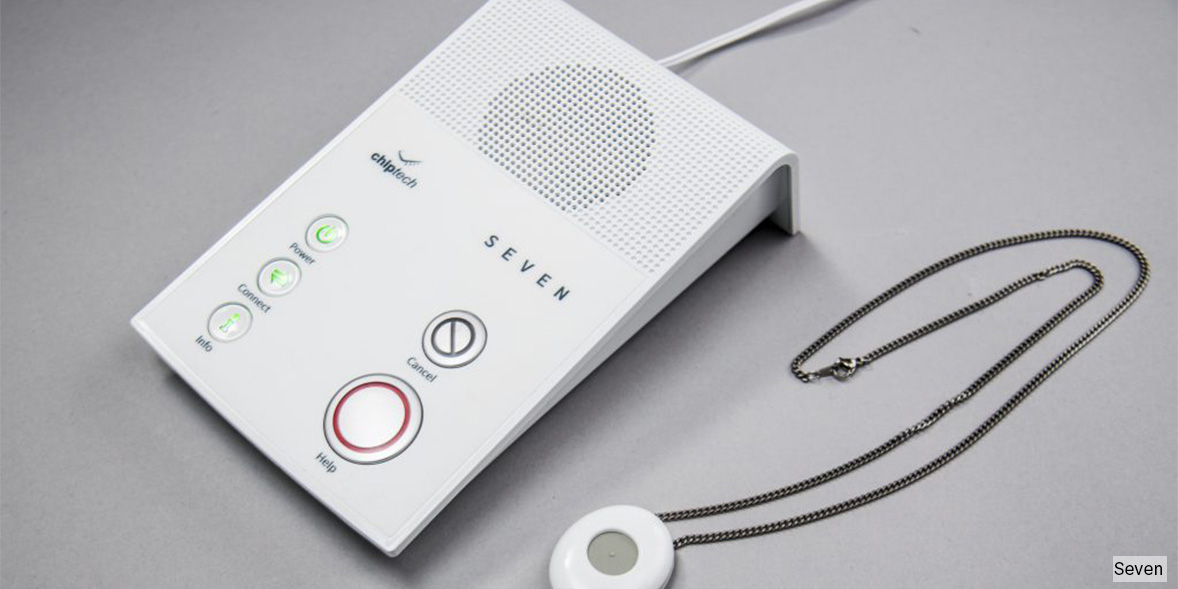
Local authorities and councils operate community alarm systems, sometimes called a lifeline alarm service.
If you sign up, you’ll receive a base unit and pendant and generally won't be charged for installation through the council.
There is a charge for using the service, but this may be subsidised or free if you are deemed eligible in a council care funding assessment.
You can read more about council funding in our guide to how to pay for care at home.
Pros
Cons
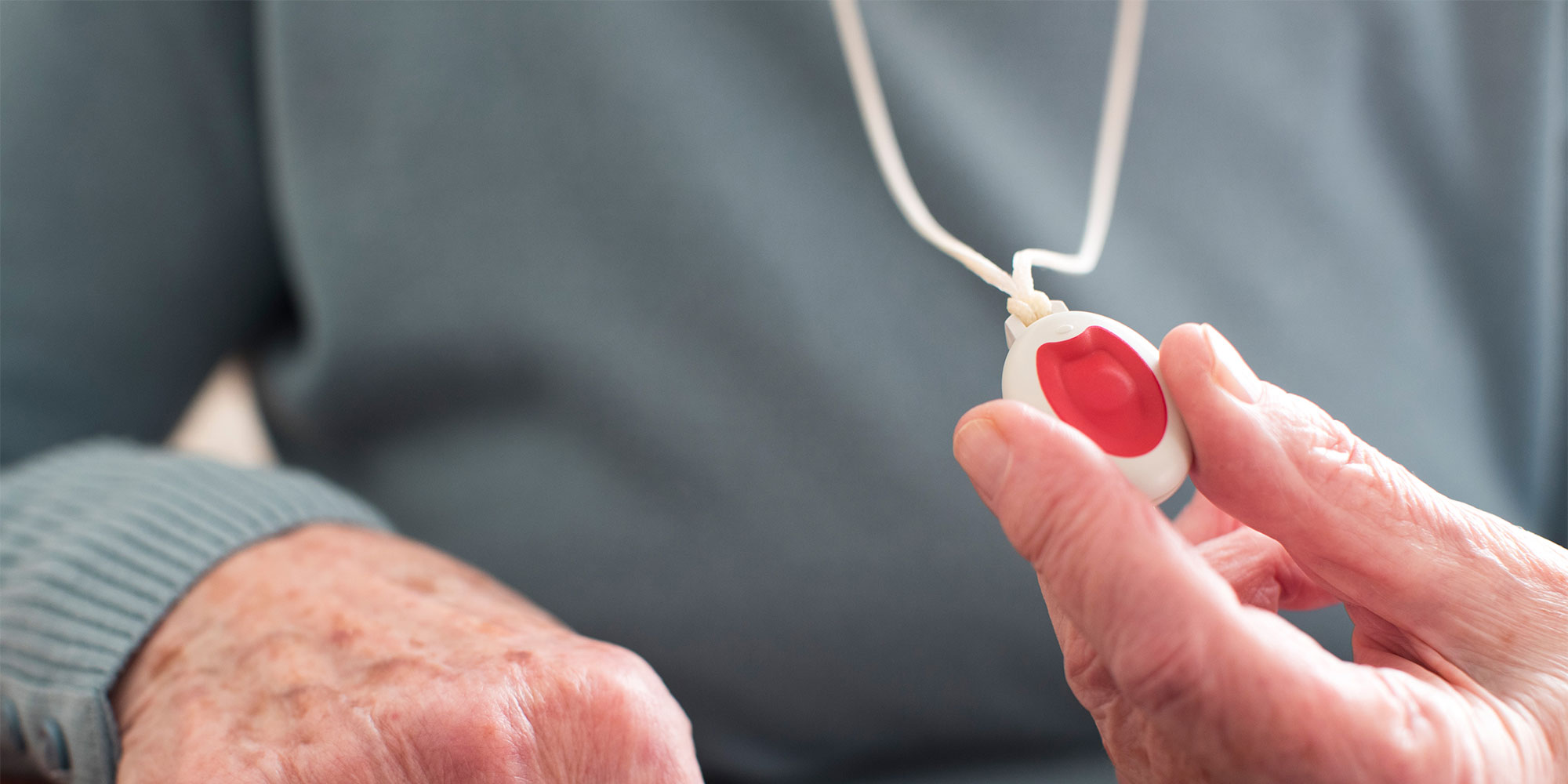
GPS tracking alarms mean your location can be pinpointed if something happens when you're away from home.
Whereas some pendant alarms are limited in their range, GPS tracking alarms have no location restrictions, so they can be used anywhere.
Most GPS trackers also come with a panic or SOS button so users can get help from a 24-hour monitoring team who will alert family members or emergency services.
Some GPS trackers allow users to communicate with staff members at a contact centre. GPS tracking services require an initial setup fee and a monthly subscription cost.
Pros
Cons
Find out how you could benefit from a range of technology to help you, including whole-home smart monitoring, in our telecare guide

The cost depends on the level of alarm or service you want. As a rough guide:
It’s worth checking whether your local authority offers a lifeline alarm service, as some provide the service for around £14 a month without installation fees.
Many systems use long-life batteries, which last between two and five years, but you may also need to buy replacement batteries if yours runs low.

Use our expert advice and recommendations to live your best life every day.
Get startedTelecare services and personal alarms are eligible for VAT relief in the UK if you are disabled or have a long-term illness and any of the following three statements apply:
You don’t qualify if you’re temporarily disabled.
Find more about VAT reductions and exemptions for disabled people and people aged 60 or over on Gov.uk.
Best riser recliner chairs – our reviews will help you buy the best chair for your needs
Unfortunately, personal alarms are not provided free of charge, but many councils offer lifeline and pendant alarms at more manageable prices.
Also, because you rent the equipment from the council, installation is normally free and they will come and fix it if you face any problems.
To check if your local council provides a lifeline alarm service, you can enter your postcode on the Gov.uk website.
If you're looking to buy a personal alarm privately, we've rounded up some of the main personal alarm providers below along with some info on what they offer and typical costs.
Please note, we have not reviewed personal alarm providers services. This information just to help you compare options and prices more easily.
Providers are listed in alphabetical order.
| Brand | Types of personal alarm available | Cheapest digital alarm | Most expensive alarm | Useful info | QSF Certified? |
|---|---|---|---|---|---|
| Careium | Indoor personal alarm, outdoor personal alarm | £49.99 setup, then £18 per month | £49.99 setup, then £26 per month | Yes | |
| HelpAlert | Home lifelines, alert watches, pendants – all available with or without fall alerts | £49.99 setup, then £16.99 per month | £49.99 setup, then £25.99 per month | HelpAlert is a Which? Trusted Trader for installation. | No |
| LifeConnect24 | Personal alarm, fall detector alarm, GPS alarm | £45 setup, then £16.99 per month | £45 setup, then £22.99 per month | Sells some analogue alarms which will not work with the digital switchover. We recommend you avoid analogue alarms. | Yes |
| SureSafe | Personal alarm pendant, watch, fall detector alarm, dementia alarm, seizure alarm | £175.45 setup, then £22.99 per month | £211.45 setup, then £22.99 per month | Sells some analogue alarms which will not work with the digital switchover. We recommend you avoid analogue alarms. | No |
| Taking Care | Personal alarm, fall alarm, GPS alarm | £29.99 setup, then £16.50 per month | £30 setup, then £29.99 per month | Yes – Devon and Chichester | |
| Telecare24 | Pendant alarm, fall alarm, GPs alarm | £45 setup, then £15 per month | £45 setup, then £21 per month | No |
Prices correct as of July 2025. Prices are without VAT, and using the cheapest payment option available, eg annual over monthly.
Unless otherwise stated, the brands listed here only sell digital alarms that are ready for the digital switchover.
The Telecare Services Association's (TSA) Quality Standards Framework is a voluntary initiative that measures companies against a set of standards. Brands that don't have QSF certification may still meet the standards but have not signed up to the certification. You can read the full list of certified organisations on the TEC Quality website.
Looking to buy a new bed that will help with your mobility? Read our guide on how to choose the best adjustable bed
To help you choose the best type for your needs, consider the type of equipment and level of service you require, as there’s no point paying for more than you need.
Here are some of the key things to consider if you're going private:
Learn how you could get help with your mobility by reading our guides on stairlifts and rollators
The UK’s landline network is currently being upgraded from an analogue system to a digital connection – a process known as the digital switchover – which will be completed in 2027.
If you have a personal alarm, you should contact your landline provider to let them know as soon as possible.
They will also flag you as a telecare user on their system, which will mean they can give you an enhanced support service and quicker response time.
Ofcom has also made it a requirement for telecoms providers to identify people who are reliant on their landline and provide them with a free back-up option in case there's a power outage.
We think some providers aren't doing enough to protect customers, see the full story into telecare providers still selling analogue alarms.
If you have an analogue device, meaning it doesn’t use a wi-fi or Sim connection, they will defer migrating you to digital services to allow for time to confirm that the device will continue to work.
You can find out more in our guide to the digital switchover and how it impacts telecare and personal alarm services.
To make sure your personal alarm is futureproofed for upcoming phoneline changes, check the following before buying:
If you're starting to have difficulty navigating the stairs, read our guide to the best stairlift brands for product recommendations
If you're using a basic alarm that releases a loud noise, it will sound for as long as you press the button or until the battery runs out.
Some basic alarms come fitted with a pin that sounds when it's removed from the device, it will then continue to make a noise until the pin is reinserted.
Alternatively, pendant alarms that are connected to a 24-hour monitoring centre should be answered almost immediately.
Viagra Connect vs Cialis Together and Eroxon - find out how over-the-counter erectile dysfunction treatments compare and what to know before you buy
If you're looking for a personal alarm that alerts other people in the house when you're in difficulty, you should consider a basic alarm.
A basic alarm releases a loud noise when either a button is pressed or a small pin is pulled out of the device.
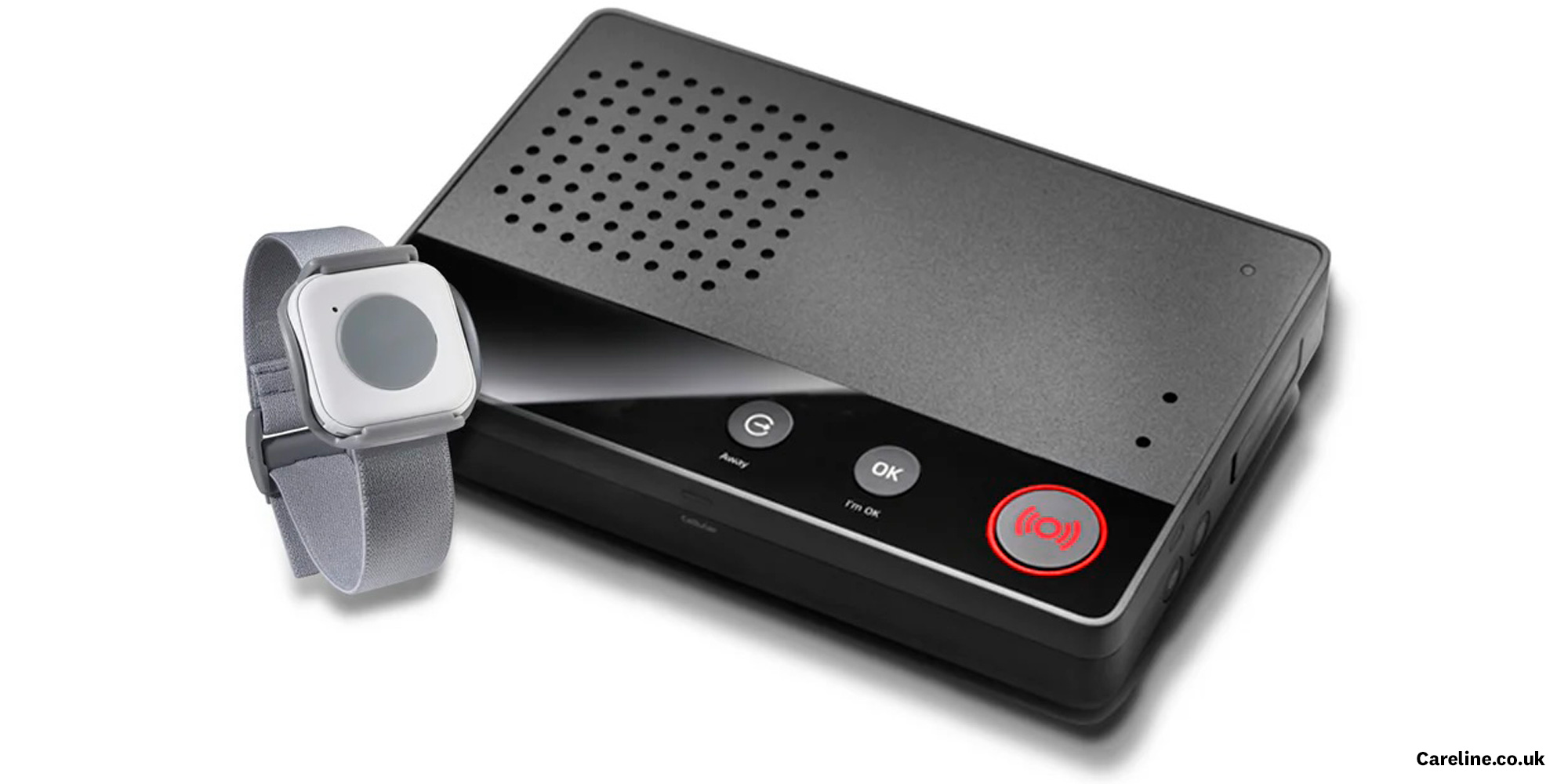
If you’re shopping around for a personal alarm, you’ll probably come across the phrase ‘telecare’. Essentially, this means technology that can remotely monitor someone’s activity (usually in their home) and send an alert to a call centre or carer when needed. Personal alarms are often a key component of this service.
Our telecare guide explains your options, from basic 24/7 personal alarm telecare services to sophisticated smart systems that can combine a personal alarm with various sensors, such as movement sensors or heat sensors. This can alert a carer about a range of situations, such as if you leave the property, slip out of your bed or chair, or appear to be inactive for too long.